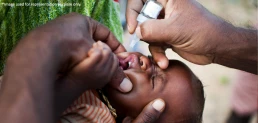The initial years of a child’s life are the basis and foundation of a whole life of learning, health, and success. Between birth and age eight, children undergo a rapid brain development that defines their way of thinking, feeling, and relating to the world. Early childhood care and education of high quality not only fosters curiosity and creativity but also enhances social, emotional, and cognitive abilities. Investing in these early years enables parents, teachers, and societies to realise the full potential of a child and create a better future.
Understanding Early Childhood Care and Education
Early childhood care covers children from birth to age eight. During this period, structured learning, nutrition, and protection work together to support mental, emotional, and physical growth. Early interventions maximize children’s potential.
Definition and scope of early childhood care
Early childhood care can be described as the comprehensive assistance to young children in the form of education, healthcare, nutrition, and emotional care. Its scope includes:
- Preschool learning programs
- Medical and nutritional services.
- Parental support and involvement.
- Security and stimulation in the developing years.
These factors make early childhood education beneficial to children, irrespective of social groups.
Increased Stress and Anxiety in Low-Income Households
- Families are prone to unstable income, overpopulation, and food insecurity.
- There is an everyday survival imperative that generates tension in the home.
- This stress is passed on to children and causes anxiety, sleep problems, and fear.
- This long-term stress disrupts emotional control and the feeling of safety.
Key Benefits of Early Childhood Care & Education
Early childhood education benefits include enhanced school readiness, better health outcomes, social skills, and resilience. Evidence shows that early childhood education is important for long-term personal growth and community development.
Cognitive and academic advantages
Children in an organized early childhood care receive:
- Development of better language and literacy.
- Advanced problem-solving skills.
- Better math readiness
- Improved academic achievement at school.
This cognitive development explains why early childhood education has not just academic benefits, but also influences curiosity, confidence in learning, and intellectual ability throughout their life.
Social-emotional and behavioral development
Quality early childhood care builds:
- Caring, collaboration, and sharing.
- Better self-regulation and conduct.
- Trust in social relations.
- Reduced emotional problems.
Early childhood education is significant and inclusive, giving children resilience and healthy relationships that continue into adult life.
Equity and long-term societal impact
Early childhood education has a positive impact on society by:
- Reducing achievement gaps
- Inclusion of disadvantaged children during learning.
- Enhancing equity.
- Reducing next-generation social expenditure.
Early childhood care also builds communities where all children, regardless of background, thrive, contributing to long-term productivity and social harmony.
The Role of Quality in Early Childhood Programs
The value of early childhood education benefits depends on program quality. High-quality care ensures children develop in safe, stimulating, and supportive environments, maximizing the potential of early childhood education.
Characteristics of High-Quality Care
Quality early childhood care programs are comprised of:
- Skilled teachers and caregivers.
- Child-friendly infrastructure.
- Developmentally appropriate, play-based curriculum.
- Community and family involvement.
- Good health, nutrition, and hygiene habits.
The factors mentioned above emphasize the importance of early childhood education to equitable growth.
Practical Steps for Parents & Caregivers
Families and caregivers play an essential role. Practical steps such as choosing suitable programs and engaging children at home reinforce early childhood education benefits across multiple environments.
Choosing the Right Early Childhood Program
The parent and the caregiver should observe:
- Higher-quality, trained educators with child-oriented methods.
- Equivalent focus on learning and play.
- Safety and health measures
- Proper teacher-to-child ratio.
- Conformity to the standards accepted by the government.
With such care, early childhood education becomes relevant in day-to-day practice.
Engaging at Home
At home, families can:
- Read aloud daily
- Encourage creative play
- Maintain nutritious meals
- Create consistent routines
- Support emotional expression
These actions strengthen early childhood care, proving that early childhood education benefits extend beyond formal classrooms.
How CRY America Can Help With Early Childhood Care and Education
CRY America strives to achieve quality early childhood care. CRY America also contributes to the achievement of equal access to learning opportunities by offering programs that address preschool education, nutrition, and health. The interventions are supported by contributions that make early childhood education significant to lifelong success.
Donations empower efforts aligned with UNICEF early childhood development frameworks and the Government of India’s Early Childhood Care & Education policy. By contributing, donors enable children to access safe spaces, nurturing environments, and proven early childhood education benefits that positively impact future generations.
FAQs on Importance of Early Childhood Care and Education
At what age does early childhood education typically begin and end?
Early childhood education usually begins around age three and continues until about age eight, covering preschool to early primary grades. These years are crucial as children develop foundational language, cognitive, emotional, and social skills that shape their future learning, adaptability, and overall personal development.
Why is early childhood care important for brain development?
Early childhood care provides children with proper nutrition, stimulation, and emotional security, supporting rapid brain growth. During these years, neural connections form at an incredible rate, shaping memory, learning, and behavior. Quality care ensures children develop stronger cognitive, social, and emotional skills essential for lifelong learning and success.
How can parents choose the right early childhood care option?
Parents should consider safety, teacher qualifications, learning approaches, and emotional support when choosing early childhood care. Visiting facilities, reviewing curriculum, and observing teacher-child interaction are helpful. A nurturing environment that balances academics with play and promotes holistic development ensures children feel secure, engaged, and motivated to learn effectively.
How does early childhood education improve social and emotional skills?
Early childhood education encourages interaction, cooperation, and communication among children. Structured activities and play help develop empathy, self-control, and problem-solving skills. Learning to share, express emotions, and build relationships fosters resilience, confidence, and emotional intelligence, preparing children to adapt positively in school, society, and lifelong personal experiences.
Recommended for you























